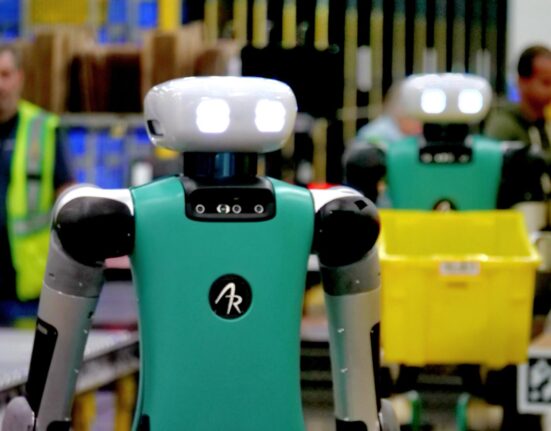Why are data center investors flocking to Lagos’ coastline? Well, let’s dive deep into this fascinating development that is shaping the city’s tech landscape.
In a bid to tap into Lagos’ thriving data center market, which is expected to hit 80 megawatts by 2027, global investors are channeling significant investments into Victoria Island and the Lekki Peninsula. These areas stand out as prime locations within the city’s affluent urban neighborhoods.
Lagos Island is strategically positioned to become Africa’s second-largest data center hub due to its proximity to eight submarine internet cables. While Johannesburg currently leads with a capacity of 200MW, Lagos is fast catching up. The race towards Lagos’ coastline underscores both the opportunities and challenges of investing in Africa’s evolving data economy.
The Importance of Proximity
The closer a data center is located near a submarine cable landing station (CLS), the quicker data can travel, resulting in reduced delays. Coastal data centers are strategically situated close to these landing stations not only to enhance speed and efficiency but also to serve as backup hubs. This setup ensures network continuity even if inland connections face disruptions.
Ayotunde Coker, CEO of Open Access Data Centre (OADC), emphasizes that infrastructure availability and proximity to landing stations are key factors driving investors towards building data centers in areas like Victoria Island.
Major Connectivity Projects
Google’s Equiano submarine cable boasts an impressive capacity of up to 144 terabits per second (Tbps) and lands directly at OADC’s Tier III-certified facility in Lekki. Similarly, the MainOne submarine cable with a capacity of 10 Tbps connects directly to MDXi data center – MainOne’s Tier III-certified facility also based in Lekki, Lagos.
Nigeria boasts eight submarine cables including Google’s Equiano and 2Africa which make landfall along the Lagos Island coastline before linking up with terrestrial fiber-optic networks for wider distribution. Presently, ten out of Nigeria’s sixteen existing data centers are concentrated in key areas such as Victoria Island, Lekki, and Eko Atlantic City with more expansions underway.
Expanding Capacity
Several projects are currently underway including Equinix’s upcoming 20MW facility, Kasi’s new 5MW center, Nxtra by Airtel’s ambitious 38MW data center project alongside Open Access Data Centre’s planned 24MW facility – all slated for completion within the next few years. These additions will significantly expand Nigeria’s total capacity from the current 64MW mark to approximately 200MW.
By bringing data processing closer to end-users through these facilities, delays will be minimized thus enhancing cloud services performance, streaming capabilities as well as online gaming experiences. Additionally, improved capacity will boost network reliability leading to reduced downtimes and ensuring stable connectivity for users across various platforms.
Beyond Connectivity: Power & Water Resources
Investors aren’t just attracted by connectivity alone; they’re equally drawn by Lagos’ improving power infrastructure particularly evident in designated “Band A” service areas like Victoria Island and Lekki where electricity supply averages between twenty-four hours daily—a critical requirement for optimal data center operations.
Moreover, coastal locations provide easy access to water resources essential for cooling systems that prevent overheating while maintaining operational efficiency—a pivotal consideration given that global projections indicate rising water consumption by AI-driven data centers in coming years.









Leave feedback about this